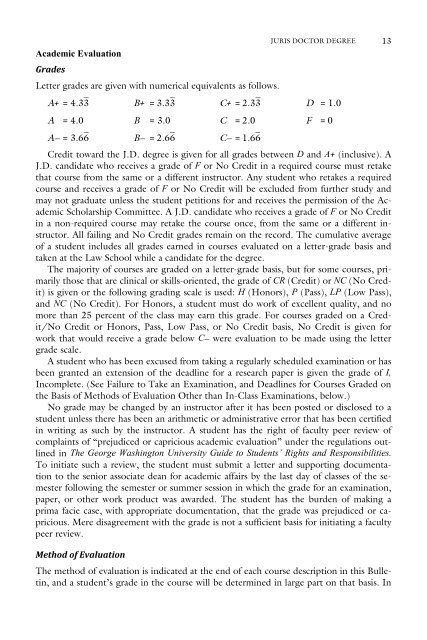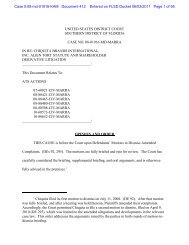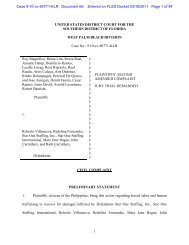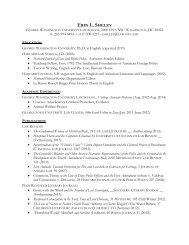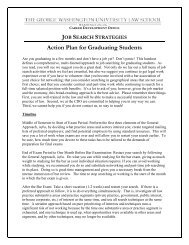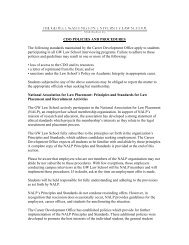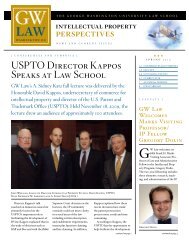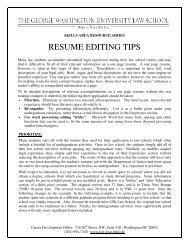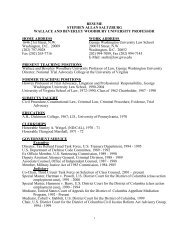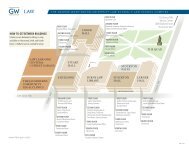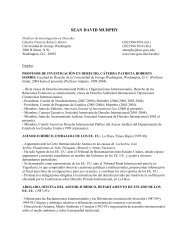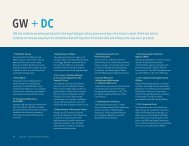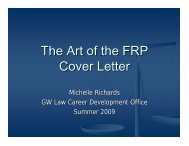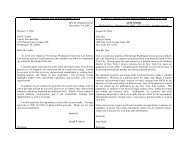The Bulletin - George Washington University Law School
The Bulletin - George Washington University Law School
The Bulletin - George Washington University Law School
- No tags were found...
Create successful ePaper yourself
Turn your PDF publications into a flip-book with our unique Google optimized e-Paper software.
Academic EvaluationGradesLetter grades are given with numerical equivalents as follows.JURIS DOCTOR DEGREE 13A+ = 4.33 – B+ = 3.33 – C+ = 2.33 – D = 1.0A = 4.0 B = 3.0 C = 2.0 F = 0A = 3.66 – B = 2.66 – C = 1.66 –Credit toward the J.D. degree is given for all grades between D and A+ (inclusive). AJ.D. candidate who receives a grade of F or No Credit in a required course must retakethat course from the same or a different instructor. Any student who retakes a requiredcourse and receives a grade of F or No Credit will be excluded from further study andmay not graduate unless the student petitions for and receives the permission of the AcademicScholarship Committee. A J.D. candidate who receives a grade of F or No Creditin a non-required course may retake the course once, from the same or a different instructor.All failing and No Credit grades remain on the record. <strong>The</strong> cumulative averageof a student includes all grades earned in courses evaluated on a letter-grade basis andtaken at the <strong>Law</strong> <strong>School</strong> while a candidate for the degree.<strong>The</strong> majority of courses are graded on a letter-grade basis, but for some courses, primarilythose that are clinical or skills-oriented, the grade of CR (Credit) or NC (No Credit)is given or the following grading scale is used: H (Honors), P (Pass), LP (Low Pass),and NC (No Credit). For Honors, a student must do work of excellent quality, and nomore than 25 percent of the class may earn this grade. For courses graded on a Credit/NoCredit or Honors, Pass, Low Pass, or No Credit basis, No Credit is given forwork that would receive a grade below C were evaluation to be made using the lettergrade scale.A student who has been excused from taking a regularly scheduled examination or hasbeen granted an extension of the deadline for a research paper is given the grade of I,Incomplete. (See Failure to Take an Examination, and Deadlines for Courses Graded onthe Basis of Methods of Evaluation Other than In-Class Examinations, below.)No grade may be changed by an instructor after it has been posted or disclosed to astudent unless there has been an arithmetic or administrative error that has been certifiedin writing as such by the instructor. A student has the right of faculty peer review ofcomplaints of “prejudiced or capricious academic evaluation” under the regulations outlinedin <strong>The</strong> <strong>George</strong> <strong>Washington</strong> <strong>University</strong> Guide to Students’ Rights and Responsibilities.To initiate such a review, the student must submit a letter and supporting documentationto the senior associate dean for academic affairs by the last day of classes of the semesterfollowing the semester or summer session in which the grade for an examination,paper, or other work product was awarded. <strong>The</strong> student has the burden of making aprima facie case, with appropriate documentation, that the grade was prejudiced or capricious.Mere disagreement with the grade is not a sufficient basis for initiating a facultypeer review.Method of Evaluation<strong>The</strong> method of evaluation is indicated at the end of each course description in this <strong>Bulletin</strong>,and a student’s grade in the course will be determined in large part on that basis. In


